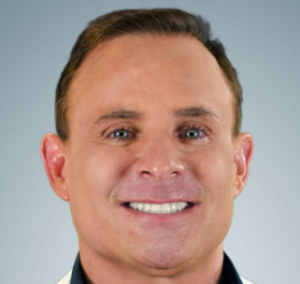
T3 just may work better on depression than antidepressant drugs.
A large percentage of people suffering from depression actually have low thyroid, says Dr. Kent Holtorf, MD, thyroidologist and founder of Holtorf Medical Group in California.
In other words, many people’s clinical depression is caused by underactive thyroid (hypothyroidism) and they don’t even know it, and hence, are unaware of a highly effective treatment: T3.
Hypothyroidism (underactive thyroid) is associated with weight gain, fatigue and feeling cold, but depression is also a common symptom, and may even be the only symptom.
“The largest study done on the treatment of hypothyroidism with antidepressants found that supplementing with the thyroid hormone T3 worked as well or better than all the antidepressants,” says Dr. Holtorf.
“This is one of the hundreds of studies that demonstrate that a large percentage of patients with depression are actually low thyroid.”
Physicians are missing this cause of depression (low thyroid) left and right, and instead, writing out the prescriptions for antidepressants in droves.
The Star*D report is the largest trial, with over 4,000 patients, comparing antidepressant effectiveness for depression treatment.
Dr. Holtorf says the study found that “Sixty-six percent of patients fail to respond to antidepressants or have side effects severe enough to discontinue use.”
Side effects of antidepressants can actually be disabling, including dizziness, nausea, more depression, and suicidal thoughts in teen and young adult patients.
Of patients who do respond well to antidepressants, says the Star*D study, more than half will relapse within a year.
However, this investigation found that “T3 was effective even when other medications — such as Celexa, Wellbutrin, Zoloft, Effexor, or (behavioral) cognitive therapy — were not,” explains Dr. Holtorf.
T3 was shown to be 50 percent more effective, he continues, “even with the less than optimal dose of 50 mcg, under direct comparison with significantly less side effects than commonly used therapeutic approaches with standard antidepressants.”
A standard thyroid function test, obtained by drawing blood, will not reveal low T3 levels.
Hence, a doctor reviewing a patient’s blood work will not pick up on potentially low T3 levels.
I asked Dr. Holtorf why doctors don’t order a specific T3 test when a patient presents with depression.
He replies, “The simple answer is that the tests check what is in the blood, but what matters is what is in the cells.”
The TSH (thyroid stimulating hormone) is the standard test given to people for their annual physical checkups.
Dr. Holtorf says this test is regarded as the most sensitive marker of the peripheral tissue levels of the thyroid.
However, this view is incorrect, he continues. “Most endocrinologists and other physicians erroneously assume that, except for unique situations, a normal TSH is a clear indication that the person’s tissue thyroid levels are adequate.”
Low thyroid levels are clearly a culprit in many cases of depression.
The importance of T3 levels must not be overlooked. Dr. Holtorf explains, “Not only can low thyroid cause depression, but it can make it much worse in the face of depression, so every person needs to get their thyroid levels tested.
“The problem is that the standard blood tests that are typically used by the overwhelming majority of doctors will miss low thyroid levels in depression.
“Why? What is called a free T3/reverse T3 ratio is currently the best method to detect these low levels in depression.”
For all people with depression and even bipolar disorder, a time-released supplementation with T3 should be considered as possible treatment despite a seemingly “normal” serum thyroid level, continues Dr. Holtorf.
A standard TSH test may be “normal” in a patient exhibiting classic signs of depression, but again, the standard TSH test is not sensitive to measuring T3 levels.
Though supplementation with T3 (the active thyroid hormone) may effectively treat a person’s depression, Dr. Holtorf stresses that “Straight T4 (the inactive thyroid hormone) should be considered inappropriate and suboptimal therapy for replacement in such patients.”
The thyroid supplement is not synthetic; it is bioidentical, meaning it’s the actual hormone that the patient takes every day in the form of a small pill.
Here are three study references that report the strong link of low thyroid (T3) to depression:
Int J Neuropsychopharmacology 2008;11:15-25
Journal of Affective Disord 2009;116:222-226
Am J Psychiatry 2006;163:1519-1530
 Dr. Holtorf has published a number of endocrine reviews on complex topics in peer-reviewed journals on controversial diseases and treatments.
Dr. Holtorf has published a number of endocrine reviews on complex topics in peer-reviewed journals on controversial diseases and treatments.
 Lorra Garrick has been covering medical, fitness and cybersecurity topics for many years, having written thousands of articles for print magazines and websites, including as a ghostwriter. She’s also a former ACE-certified personal trainer.
Lorra Garrick has been covering medical, fitness and cybersecurity topics for many years, having written thousands of articles for print magazines and websites, including as a ghostwriter. She’s also a former ACE-certified personal trainer.
.









































